The much-anticipated announcement by Egypt’s ruling military council of a schedule for the nation’s first post-revolution parliamentary elections was met with dismay by a wide range of political parties, from the Muslim Brotherhood to the liberal Ghad Party to the conservative Freedom and Justice Party. In all, more than three dozen parties are saying they plan to boycott the elections, the first round of which is slated for Nov. 28, on grounds that the timeline for voting unfairly stacks the deck in favor of former political allies of ousted President Hosni Mubarak. While no one is actually running under Mubarak’s […]
Africa Archive
Free Newsletter
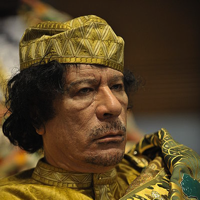
With the remaining loyalists of Moammar Gadhafi’s deposed regime facing their inevitable demise, it comes as no surprise that human rights organizations and international journalists are finding a multitude of mass graves and ample evidence that torture was a routine affair in Gadhafi’s Libya. But as Gadhafi’s bloody excesses return to the spotlight, so too does the corruption and cynicism exhibited by the regime’s fellow travelers from beyond Libya’s borders. It is well known that under Gadhafi, the country consistently maintained its place among the world’s “Worst of the Worst” violators of human rights and political freedoms. And yet, in […]
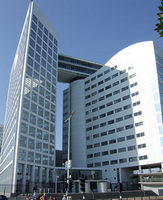
Nine years after its launch in July 2002, the International Criminal Court has made a promising though problematic start. Some of its difficulties are inherent in its mission and context. Others have been generated by states’ and officials’ behavior. Carrying out the court’s mandate to prosecute the perpetrators of humanity’s worst crimes would be difficult even in ideal circumstances. Circumstances are not ideal: The ICC is an international organization that many important states have not joined; it commands a limited budget; it is subject to the political and personal foibles common to international organizations; and finally, its independence is constrained […]
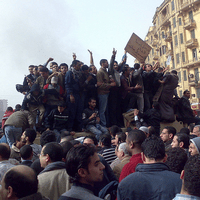
When Mohamed Bouazizi set himself on fire in his Tunisian village last December, nobody knew he would electrify the entire Arab world and send the existing political order in the region into a long period of turmoil. Very quickly, however, there were signs that the success of Tunisian demonstrators in toppling their long-ruling dictator had sparked something important — something with probably lasting, although unclear consequences. As the first signs emerged that the movement might catch on elsewhere in the region, a catchy label derived from Czechoslovakia’s brief Cold War-era uprising against Soviet rule quickly engraved itself in the Western […]
The war in Libya and the recently increased activities of three Africa-based Islamist groups have raised questions about whether Africom — the U.S. military command created to oversee U.S. military operations in Africa — may be shifting from its initial posture of projecting soft power to one of managing a hot theater. However, according to Jennifer G. Cooke, who directs the Africa Program at the Center for Strategic International Studies in Washington, while Africom’s public affairs posture may now be in flux, the command’s core mission of growing African capabilities to meet African security challenges has not changed. Cooke reminded […]

BEIJING — Hamstrung by domestic sensitivities and an inadequate institutional framework for managing its proliferating overseas interests, China has found itself behind the curve on Libya. Beijing’s response has revealed the disparate interest groups within its foreign policy apparatus and the challenges it faces when responding to international events. Despite previous progress, China’s foreign policy apparatus needs to become more adroit at public positioning and more discrete and institutionally consistent in its private diplomacy to secure its international rise. Last Monday,* Beijing became the last major economic power to recognize Libya’s National Transitional Council (NTC), 10 days after Russia did […]
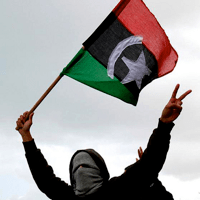
In the aftermath of the Libya operation, my Naval War College colleague Tom Nichols concluded bluntly, “Humanitarian interventions are here to stay and are going to be driven more by moral calculation and military opportunity than by ‘national interest.’” This, it seems, is the new American foreign policy consensus; despite the costly U.S. wars in Iraq and Afghanistan, the anti-interventionist coalition has lost the policy debate. The current fiscal crisis may trim back the scale and scope of future interventions, but will not eliminate them altogether from the U.S. policy toolbox. Even with its fiscal constraints, the United States will […]
In his WPR column yesterday, Robert Farley discussed Israel’s strategic options in light of damaged and possibly doomed ties with Turkey and Egypt. But it’s worth noting that an Israel in conflict with two of the United States’ closest regional allies also has significant impact on the United States’ strategic calculus in the Middle East. When two friends get into a dispute that not only resists resolution but actually deepens, one eventually begins to feel pressure to move from trying to mediate to choosing sides. And given the realities of U.S. domestic politics, it’s only a matter of time before […]
The visit to Paris this week of Rwandan President Paul Kagame coincided with coverage in the French press of allegations accusing former French President Jacques Chirac of accepting suitcases full of cash as kickbacks from African heads of state. Combined, the two stories highlight the ways in which France under President Nicolas Sarkozy is turning a page in its relations with Africa, but also the ways in which the legacy of the past has proven hard to escape. In this, Sarkozy’s presidency, like that of U.S. President Barack Obama in its own way, is likely to be a transitional one, […]
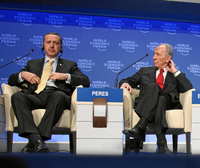
Over the past two weeks, Israel has seen two critical strategic relationships with key regional allies nearly collapse. In Cairo, protesters stormed the Israeli Embassy, causing property damage but no injuries. This came on the heels of a border incident in Sinai, in which Israeli soldiers in pursuit of Palestinian militants accidentally killed several Egyptian soldiers. The Israeli government has taken steps to reduce tensions with Egypt, but the ability of the latter’s transitional military government to mend fences is unclear. As for the willingness of any new Egyptian government to spend political capital on maintaining a good relationship with […]
Mozambique recently offered Brazilian farmers 15 million acres of farmland at a symbolic price to be used for the production of soy, corn and cotton. In an email interview, Adriana de Queiroz, an executive coordinator at the Brazilian Center for International Relations (CEBRI) who writes in a personal capacity, discussed Brazil-Africa relations. WPR: What are the main countries and sectors for Brazilian investment in Africa? Adriana De Queiroz: Brazilian companies have been investing mainly in mining, infrastructure and oil and gas in Africa. A significant proportion of this investment has been in Portuguese-speaking countries, such as Angola and Mozambique. Brazilian […]

Post-Gadhafi Libya is set to become the next major test of two competing approaches to international affairs — the “gratitude doctrine” of the Western alliance pitted against the “strict neutrality” practiced by Beijing. The “gratitude doctrine,” in short, is the West’s assumption that providing assistance to those seeking to overthrow a repressive regime — especially in the form of timely military aid to counterbalance the overwhelming advantages enjoyed by the forces of the dictator — will produce a successor government that will be more receptive to U.S. and European influence and more responsive to their interests and concerns. The doctrine’s […]
With Moammar Gadhafi now ousted, Libya’s National Transitional Council (NTC) is scrambling to restore order to Tripoli. It remains to be seen whether international peacekeepers will be needed during the months ahead to ensure a peaceful transition toward a sustainable post-revolution society. An Iraq-style security meltdown seems, at the moment, improbable. However, should it occur, the question of who from the international community might best be suited to intervene is likely to prove problematic, says Jane Kinninmont, a senior research fellow with the Middle East and North Africa Program at Chatham House in London. While NTC leaders and opposition rebels […]
